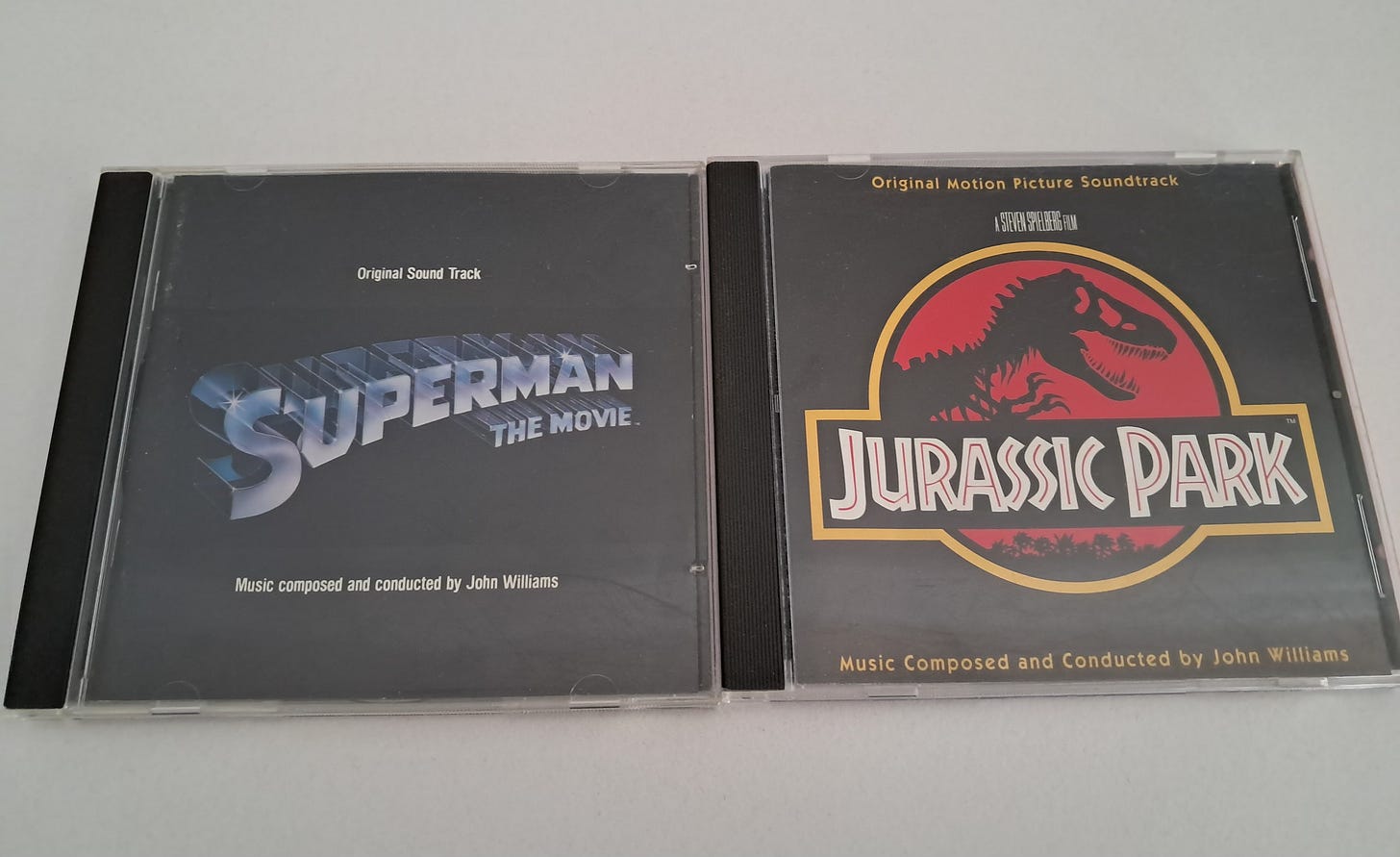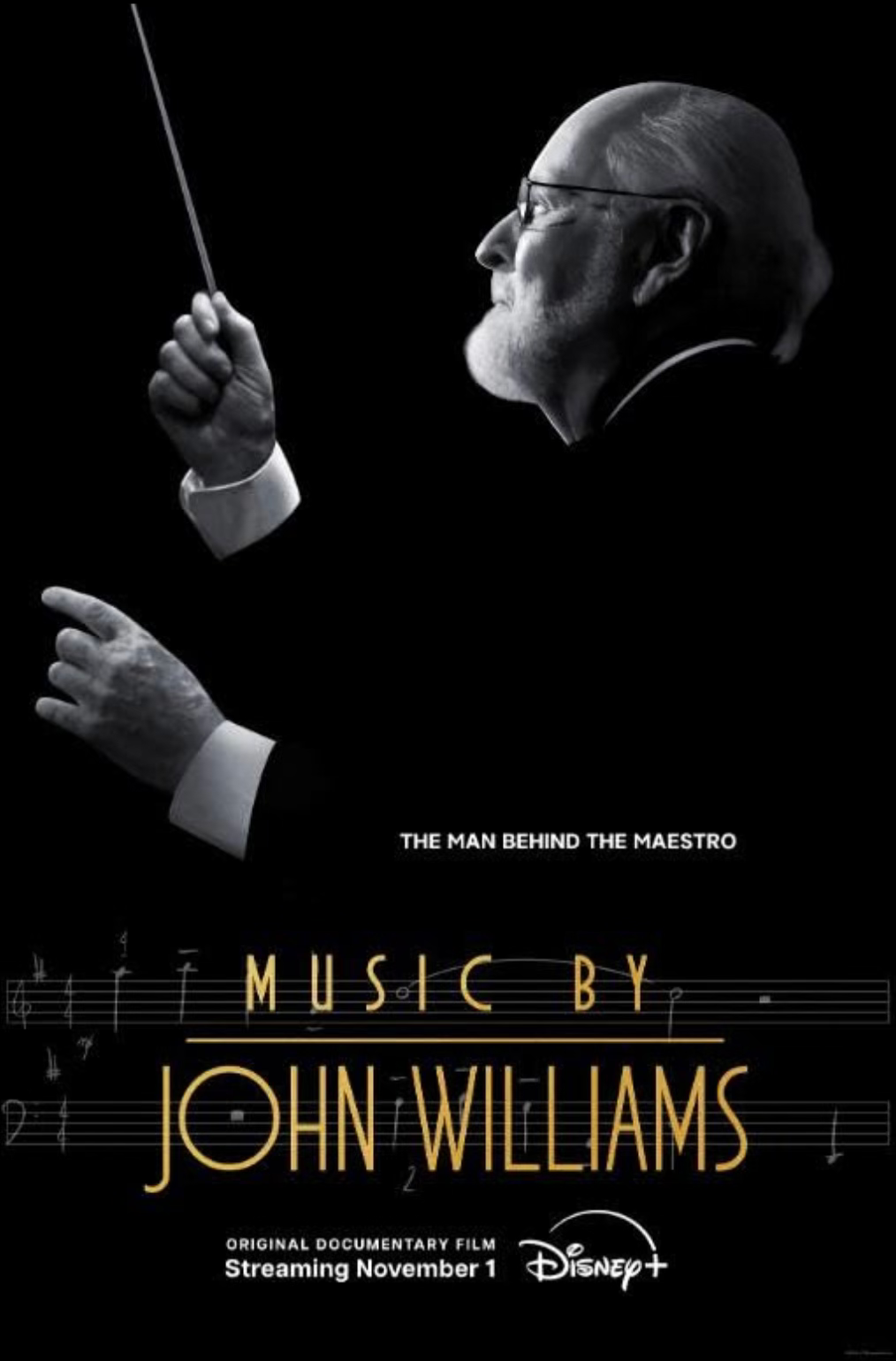John Williams taught me to love music.
His score for Superman: The Movie was the first piece of music I needed to own, and his score for Jurassic Park was the second. Before I had the CDs, I would record the main themes onto a tape cassette by holding the boombox up to the TV. Replaying the Hook score in my head was not sufficient. I needed the actual thing and would take it in whatever form I could manage.
Other soundtrack composers soon caught my attention—Danny Elfman, Jerry Goldsmith, and so many others—but John Williams has been a constant since the beginning. His music was among the very few parts of Star Wars: The Phantom Menace that did not disappoint.
Williams’s scores don’t merely fit each movie; they enhance the films and imbue them with a sonic soul. Plus, the soundtracks often stand on their own as exceptional listening material. They’re some of the best creative stimulants out there. Our lives are better with John Williams music playing in the background.
Last week, Disney+ debuted a documentary about his career, Music by John Williams. It’s similar to the recent Jim Henson documentary in that it celebrates an amazing career that has enriched our lives. It doesn’t do much else, though.
Viewed as simply a love letter to the composer and his music, it may hit the spot, but if you’re looking for penetrating psychological insights, in-depth musical analysis, or a deep dive into the creative process, it may disappoint. The documentary is basically just saying, “John Williams sure is amazing, isn’t he?” And fair enough, because he certainly is.
We do learn a bit about the man, such as how his first wife, Barbara Ruick, suddenly and tragically died of an aneurysm when she was only 41. For the most part, though, the documentary focuses on the astonishing body of work the now-92-year-old Williams has created over the decades.
He entered popular consciousness with Jaws in 1975, and Star Wars cemented him as a permanent fixture just two years later. It’s easy to forget that he had an active career even before that. He composed for TV shows such as Lost in Space and Gilligan’s Island, and he adapted the music for the Fiddler on the Roof movie, earning his first of many Oscars in the process.
The documentary also highlights his love of jazz. And now I understand why the Star Wars Cantina Band’s music is so oddly catchy when by all rights it should have been cringey.
Every Star Wars fan owes a debt to Steven Spielberg for playing matchmaker and connecting Williams and George Lucas. It’s hardly a new observation to point out how Star Wars wouldn’t be half of what it is today—if anything at all—without Williams’s score, but acknowledging this is obligatory and the documentary does so.
The decades-long friendship and collaboration between Williams and Spielberg also receives attention. The two colleagues come across as an old married couple who have managed to keep the spark alive.
Multiple times, the documentary showcases Williams’s incredible range and versatility. This one man composed Jurassic Park and Schindler’s List in the same year, for instance. Star Wars, Close Encounters of the Third Kind, and E.T. all involve aliens, but each receives its own distinct style of music. Williams excels with the action of the Indiana Jones movies, the magic of the Harry Potter movies, and the reverence of historical movies such as Amistad, Saving Private Ryan, and Lincoln.
Whatever type of movie he’s scoring, it requires an orchestra. He usually avoids electronic effects and treats the work as any other classical music. He is the twentieth and twenty-first centuries’ great popularizer of symphonies, a Mozart or Beethoven for the modern age.
If nothing else, Music by John Williams is worth turning on just to sample all the wonderful soundtracks.




I had the chance to see the man himself conduct the Louisville Orchestra; he did all the themes, Raiders, Superman, Leia's theme ,the Imperial March, Jaws... it was one of the best nights of my life. This is exactly why. The man is a legend.
The highlight was the music, for sure. Hearing each of his scores brings back a different memeory of the movies. I also meant to mention this in my post today and it slipped my mind. But he looks good for 92.